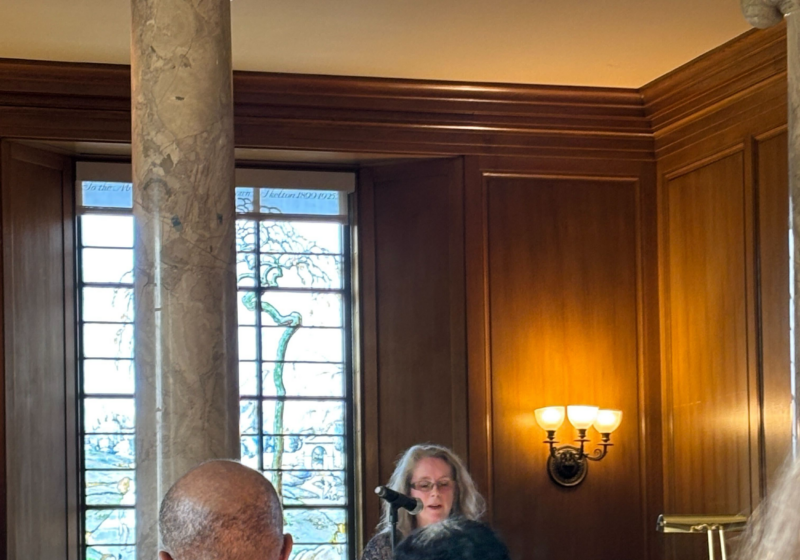When I think about anything related to fiction, the first things that pop into mind are tropes. Whether in movies, books, or even my imagination, tropes are the first things I look for. Tropes can sometimes be representative of the vibes of the books that I then use to determine whether I want to pick the book off the shelf or not. At times, tropes, or even just the representation within the books itself, may be seen as “problematic.”
But what exactly is “problematic”? There’s no definitive answer for what makes a trope problematic; what is problematic may be what it is representing — or how it is representing it — from the real world (which is up for you to decide). To many of us, including myself, fiction is a place of escapism, a place to enjoy the life of a drastically different character with a drastically different life. On the contrary, when the purpose of the media is to portray something from reality, things change: in this sense, fiction becomes a place where an individual may learn about something for the very first time, where their ideologies about certain topics and events stem from. This leads to a tug of war between what fiction should and shouldn’t represent.
Fiction is constantly evolving, fitting into the modern world and sometimes appealing to a certain audience. To appeal to a certain audience may lead to poorly executed tropes and plots, then leading to a problematic representation of what was meant to be inclusive and empowering. One of the controversies I found interesting is around the portrayal of feminism.
If you take a look at various popular young adult (YA) fantasy books with a female main character, many are shown as strong and stoic in contrast to the “damsel in distress” stereotypical female characters in older fiction. In many books, this fairly new representation is to portray feminism, to portray that females do not always have to sit in a tower waiting to be rescued by the male hero. Through this new lens, readers, especially young ones, can see how female leads do not just have to be damsels, but the heroine who saves a world just like their male counterparts could.
The conception of these characters allows readers all over the world to see themselves as capable of also making an impact on society, no matter their gender. But oftentimes, rather than embracing femininity as part of who they are, these characters completely disregard it, retaining only traditionally masculine traits like emotional stoicism, assertiveness, or independence, while discarding aspects that nonetheless reflect heroism — and can celebrate femininity at the same time. The introduction of these characters were meant to combat the portrayals of women as only damsels in distress in fiction — yet, for many readers, further convoluted the definitions and bounds of what an ideal female protagonist should vaguely resemble.
As a result, some younger readers who are only exposed to this type of heroine may be hesitant to embrace their traditionally feminine (or gender-neutral) traits like empathy, gracefulness, and sensitivity. Because a majority of past media productions have written the heroic main lead as male, many female characters in modern media have to embrace the traits of a traditional heroic male lead to be seen as heroic: stoicism, power, and definitely not femininity. As a result, readers may subconsciously associate femininity with inadequacy or weakness. Depending on the way you see these characters, it may lead to different interpretations of the representation of feminism.
In the real world, it is no different. Different individuals hold different definitions of feminism. For example, there are individuals out there who believe that all feminists are against embracing traditionally feminine roles; there are people out there who believe that to be a feminist is to not want to stay at home to raise children. Many of these interpretations come from misrepresentation and narratives of fiction that are inaccurate. If a writer holds a certain opinion about what feminism should look like, it then gets written into books for their readers to adopt. Therefore, in a way, media and reality influence one another in equal magnitudes.
At the end of the day, not all women want to be leaders and not all women want to have the traditional nurturing role; they can want both, or neither. But the narratives of femininity can stem from representation of feminism in multiple ways in fiction. Thus, the way something is represented in fiction can be crucial in its impact on the reality we live in.
Fiction is one of those things that can go in any direction. For one, I do not think much of the fiction I consume. I read for enjoyment, for the unrealistic standards, or for the chance to live in a world that is not my reality for a little bit. Yet, when I see a clear representation of me in something I read, I feel this sense of joy of feeling seen and heard, especially when it is authentic. Fiction is not obligatory to represent what the real world is unless part of the book’s purpose is to do so; when fiction is to be represented, it is important that it is done properly.
In western media, we’re getting slightly better at producing better representation of characters, events, and plots that are there to empower different groups of individuals. But like everything, progress also comes with mistakes and hurdles. Fiction is progressive. It moves with the time and with us. When our generation is ready to move on, fiction will move with us.






